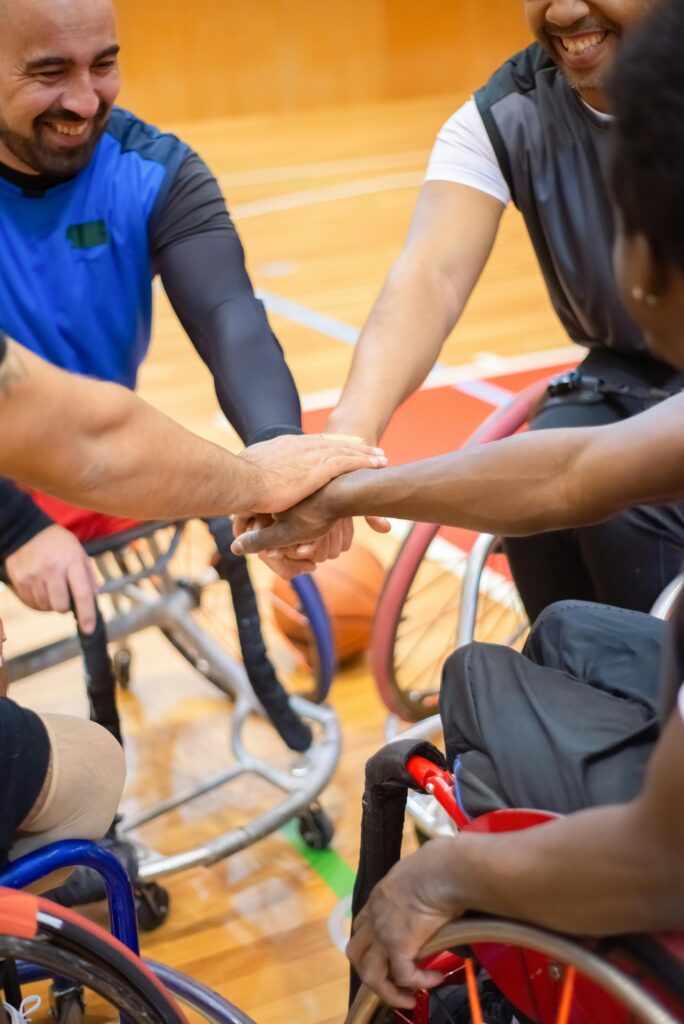Table of Contents to Veteran Health Management
- Introduction to Veteran Health Management
- The Importance of Veteran Health Management
- Veteran Care: A Special Approach
- Military Health Services: The Foundation of Care
- Post-Service Healthcare: Life After Service
- The Transition from Military to Civilian Healthcare
- Trauma Recovery: A Journey Toward Healing
- The Role of Mental Health in Veteran Health
- Physical Health and Rehabilitation
- Veteran Medical Support: What Does It Include?
- Health Programs for Veterans: A Lifeline
- Veteran Well-being: More Than Just Physical Health
- Disability Benefits and Their Impact on Veterans
- Healthcare Accessibility: Overcoming Barriers
- Veteran Rehabilitation: Restoring Independence
- Veteran Health Policy: Ensuring Adequate Support
- The Future of Veteran Health Management
- Conclusion: Supporting Our Heroes
Introduction of Veteran Health Management
Every day, veterans across the world face the challenge of transitioning from military service to civilian life. One of the key components of this transition is ensuring that veterans receive the healthcare they need to live happy, fulfilling lives. “Veteran Health Management” refers to the strategies, programs, and resources dedicated to the well-being of veterans. This eBook will explore the essential aspects of managing veteran health, from healthcare services to mental health support and rehabilitation programs.
The Importance of Veteran Health Management
Veteran health management is vital for a number of reasons. Veterans, due to their unique experiences and the physical and psychological demands of military service, often face health challenges that are not commonly found in the general population. Without proper healthcare support, these challenges can lead to long-term physical, emotional, and social issues.
Effective veteran health management ensures that veterans receive comprehensive care tailored to their specific needs, whether it’s for combat-related injuries, mental health issues like PTSD, or the general effects of aging. It also helps prevent gaps in care that could worsen their health and quality of life.

Veteran Care: A Special Approach
Veteran care is not the same as standard healthcare. Veterans often need specialized treatment due to their military experiences, which can include exposure to hazardous environments, injuries, or psychological trauma. Healthcare providers working with veterans must understand these unique circumstances and be equipped to offer care that respects their service.
Veteran care includes routine health screenings, treatment for service-related injuries or conditions, as well as mental health services. Military service can expose veterans to physical strains that civilians don’t experience, such as repetitive motion injuries, hearing loss, or exposure to toxic substances. Recognizing the distinct needs of veterans is key to ensuring they receive the best possible care.
Military Health Services: The Foundation of Care
The foundation of veteran health management begins with military health services. During their service, soldiers, sailors, airmen, and marines have access to comprehensive healthcare through the military. These services are designed to meet the needs of individuals who are exposed to unique risks and challenges while serving their country.
From preventive care, immunizations, to emergency care in the field, military health services form the first line of defense in maintaining the health of active-duty military personnel. However, when soldiers leave the service, they often need continued care for conditions that originated or worsened during their time in the military. These conditions can range from orthopedic issues to mental health challenges, such as depression or PTSD.

Post-Service Healthcare: Life After Service
After leaving military service, many veterans encounter difficulties when trying to access healthcare. In some cases, the transition to civilian healthcare can be a daunting process. There may be confusion about eligibility, a lack of understanding from civilian healthcare providers about the specific needs of veterans, or simply a gap in care.
The U.S. Department of Veterans Affairs (VA) plays a crucial role in post-service healthcare. The VA provides services ranging from primary care to specialty care, including surgery and mental health services. However, the system is not without its flaws, and some veterans find it difficult to navigate. This eBook will explore how veterans can access the care they need and what improvements are necessary for a more efficient system.
The Transition from Military to Civilian Healthcare
The transition from military to civilian healthcare is often a complex and challenging journey. Veterans may find that civilian doctors are unfamiliar with military-specific health conditions or that the systems for obtaining care are different. Additionally, veterans may encounter long wait times for appointments or a lack of continuity in care.One of the key aspects of this transition is ensuring that veterans are properly registered with the VA and understand how to access the services available to them. Many veterans also need to establish relationships with new healthcare providers and ensure that their military service-related health issues are properly documented for ongoing care.

Trauma Recovery: A Journey Toward Healing
Military service, particularly in combat, can leave deep psychological scars. Many veterans return home with PTSD (Post-Traumatic Stress Disorder), depression, anxiety, or other trauma-related conditions. Recovery from these conditions is not always straightforward, and veterans may need specialized trauma recovery programs to help them reintegrate into civilian life.
Trauma recovery involves mental health counseling, support groups, and possibly medication to address the emotional and psychological effects of combat. It’s important for veterans to recognize that seeking help is not a sign of weakness. Therapy, both individual and group, plays a key role in managing PTSD and helping veterans process their experiences.
The Role of Mental Health in Veteran Health
Mental health is an essential part of veteran health management. In addition to physical injuries, mental health challenges such as PTSD, depression, and anxiety are common among veterans. These conditions can arise due to the stress of combat, the loss of comrades, or the difficulty of reintegrating into civilian life.
Effective mental health care for veterans must be tailored to their specific needs, and veterans should feel encouraged to seek support. Mental health professionals who are familiar with military culture can help veterans address these challenges. The stigma surrounding mental health can prevent veterans from seeking help, so raising awareness and reducing stigma is crucial in providing comprehensive veteran care.

Physical Health and Rehabilitation
Physical health is another crucial aspect of veteran health management. Many veterans return from service with injuries that require long-term care or rehabilitation. These injuries could range from broken bones, sprains, and amputations to long-term conditions like arthritis or chronic pain resulting from years of strenuous physical activity.
Rehabilitation programs play a major role in helping veterans regain mobility and independence. These programs may include physical therapy, occupational therapy, and assistive devices to help with daily living activities. Additionally, some veterans may require surgical interventions or prosthetics to restore lost function.
Rehabilitation isn’t just about physical recovery—it also addresses the emotional and mental aspects of healing. Support from family, friends, and healthcare professionals is essential to a successful recovery process.

Veteran Medical Support: What Does It Include?
Veteran medical support is more than just a few doctor visits—it’s a comprehensive network of services designed to meet the unique needs of veterans. This support includes everything from routine medical exams to specialized treatments for injuries and chronic illnesses, as well as mental health services.
Veteran medical support covers a broad spectrum of care:
- Primary Care: This includes regular checkups, preventive care, and management of chronic conditions.
- Specialty Care: Many veterans have specific health needs that require specialists, such as orthopedic surgeons, cardiologists, or pain management experts.
- Mental Health Services: Veterans dealing with PTSD, depression, and other mental health conditions receive support through counseling, medication, and therapy.
- Substance Abuse Treatment: Veterans may face struggles with substance abuse, and medical support includes programs to address addiction.
Health Programs for Veterans: A Lifeline
Health programs specifically designed for veterans help ensure they receive the care they need without excessive hurdles. The VA and various nonprofit organizations offer a wide range of health programs that provide access to critical services, including mental health support, rehabilitation, and medical treatments.
Some notable programs include:
- The VA Health Care System: Offers a wide array of services to veterans, ranging from preventive care to complex surgeries.
- Veteran Mental Health Programs: These programs focus on providing therapy and counseling for veterans coping with PTSD, depression, and other mental health challenges.
- Adaptive Sports Programs: Help veterans engage in sports and physical activities, offering both rehabilitation and camaraderie.
- Telehealth Services: Allow veterans to receive medical consultations and follow-ups remotely, making healthcare more accessible for those in rural areas.
These programs are critical lifelines that help veterans maintain their physical and emotional well-being after service.

Veteran Well-being: More Than Just Physical Health
Veteran well-being extends beyond physical health—it encompasses emotional, mental, and social aspects of a veteran’s life. Well-being includes how veterans feel about their lives, their sense of belonging in civilian society, and their overall happiness.
As veterans transition to civilian life, they often face challenges like isolation, financial difficulties, and adjusting to a different lifestyle. These factors can contribute to a decline in mental and emotional health if not addressed properly. It’s important for veterans to engage in social networks, participate in community activities, and seek help when needed.
Additionally, programs focused on holistic health, which consider the physical, mental, and social dimensions of health, are crucial in ensuring a high quality of life for veterans.
Disability Benefits and Their Impact on Veterans
Disability benefits are a critical part of veteran health management. Many veterans return from service with injuries or conditions that affect their ability to work, enjoy life, or even perform daily activities. Disability benefits help veterans cope with these challenges by providing financial support and access to necessary healthcare.
The U.S. Department of Veterans Affairs offers disability compensation for service-connected injuries or illnesses. These benefits are determined by the severity of the condition and can cover a wide range of disabilities, from physical injuries to mental health disorders like PTSD.
Disability benefits can also include vocational rehabilitation services, helping veterans reintegrate into the workforce if they are able to do so. Understanding how to apply for these benefits and the eligibility requirements is important for veterans who need them.

Image placeholder: A veteran reviewing their disability benefits paperwork with a counselor.
Alt text: A veteran meeting with a VA representative to discuss disability benefits and eligibility.
Healthcare Accessibility: Overcoming Barriers
Access to healthcare is a significant challenge for many veterans. Geographic location, financial constraints, and the complexity of navigating the healthcare system can all pose obstacles. Rural veterans, for example, often have to travel long distances to access VA facilities, while some may not have access to the right specialists.
Telehealth and mobile clinics have helped to reduce some of these barriers by providing remote healthcare services. However, there are still gaps in accessibility, and it’s important for communities and policymakers to address these challenges. Veterans deserve access to timely and comprehensive care, regardless of where they live.
Additionally, ensuring that healthcare systems are veteran-friendly—meaning they understand the unique needs of veterans—is a key part of improving accessibility.
Image placeholder: A veteran using telehealth services to consult with a healthcare provider from home.
Alt text: A veteran engaging in a telehealth appointment with a healthcare provider through video chat.
Veteran Rehabilitation: Restoring Independence
Veteran rehabilitation is a crucial part of health management, especially for veterans who have sustained injuries or disabilities during their service. Rehabilitation programs aim to help veterans regain independence by addressing both physical and mental health challenges.
Rehabilitation services include physical therapy, occupational therapy, speech therapy, and vocational rehabilitation. These services help veterans rebuild their lives by teaching them new skills, providing pain management solutions, and supporting mental health recovery.
For veterans with severe injuries, rehabilitation might also involve using prosthetic devices or adaptive technologies that make it easier for them to perform daily tasks.
Veteran Health Policy: Ensuring Adequate Support
Veteran health policies are the rules, guidelines, and frameworks designed to ensure veterans receive the healthcare and support they need. These policies are established by governments, such as the U.S. Department of Veterans Affairs (VA), and aim to provide veterans with access to necessary care, benefits, and services. These policies also determine how resources are allocated to veterans and how healthcare systems are structured to meet their needs.
In recent years, veteran health policies have undergone significant reforms. The VA has worked to reduce wait times, expand access to care, and improve the quality of services offered to veterans. However, there are still challenges in ensuring that these policies are effective in addressing the diverse needs of veterans, especially in areas such as mental health and long-term care.
Understanding how veteran health policies work can help veterans navigate the system and advocate for their care. It is also crucial for policymakers to continue improving these policies to ensure veterans’ health needs are met, both now and in the future.

The Future of Veteran Health Management
The future of veteran health management holds many possibilities for improvement, as technology, policy changes, and new care strategies continue to evolve. One of the most significant changes is the increasing use of telemedicine and digital health technologies. Telehealth allows veterans to consult with healthcare providers remotely, which is especially beneficial for those in rural areas or with mobility challenges.
Another area of focus is the expansion of mental health services. As society becomes more aware of the importance of mental health, it is likely that veterans will have better access to resources and support, including therapy, counseling, and peer support networks. Additionally, holistic approaches to health that address both physical and mental well-being are likely to become more common.
Advances in medical technologies, including prosthetics and personalized medicine, will also likely enhance the rehabilitation process for veterans with physical injuries. As the world of healthcare continues to improve, so too will the systems in place to care for veterans, ensuring they receive the support they deserve.
Conclusion: Supporting Our Heroes
Veteran health management is a vital area that requires continuous attention, improvement, and innovation. As veterans transition from military service to civilian life, it is essential that they have access to the healthcare services and support they need to lead healthy, fulfilling lives.
Throughout this eBook, we’ve explored the complexities of veteran care, from physical health to mental health and rehabilitation. We’ve seen how important it is for veterans to have tailored care, specialized programs, and a supportive community to help them recover and thrive.
Supporting our veterans is not just the responsibility of governments or healthcare providers—it’s a shared responsibility for all of us. By improving systems of care, advocating for better policies, and ensuring accessible health programs, we can all contribute to helping our heroes maintain their well-being.
Every veteran deserves to feel valued, supported, and empowered, and it’s up to us to make sure they have the tools and resources to succeed. Together, we can ensure that our veterans are not only cared for but also honored for their service and sacrifices.


